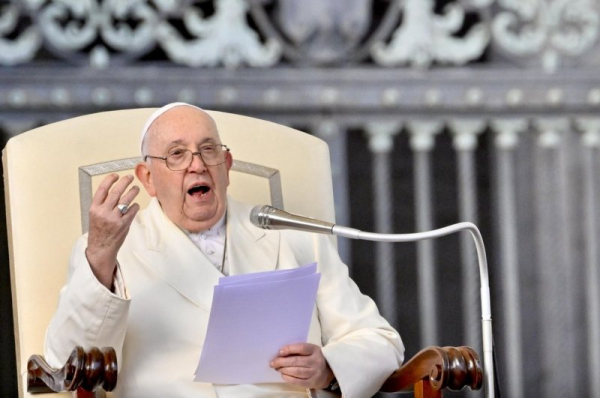
Pope Francis on Thursday warned of the dangers of artificial intelligence, calling for a binding international treaty regulating the technology’s development. File Photo by Alessandro Di Meo/EPA-EFE
Pope Francis on Thursday called for a binding international treaty regulating artificial intelligence’s development and advancement, warning it could lead to a “technological dictatorship” if left unchecked.
Francis delivered the warning as part of his annual Message for the World Day of Peace, as he said any benefit of technological research should be determined by how it helps in bringing peace and common good to the world along with the “service of the integral development of individuals and communities.” Advertisement
“Technological developments that do not lead to improvement in the quality of life of all humanity, but on the contrary aggravate inequalities and conflicts, can never count as true progress,” he said.
He further cautioned that AI could lead to groundbreaking advancements but it will need regulations because no technology is “neutral.”
“As fully human activities, the directions they take reflect choices conditioned by personal, social, and cultural values in any given age,” Francis said.
“The same must be said of the results they produce: precisely as the fruit of specifically human ways of approaching the world around us, the latter always have an ethical dimension, closely linked to decisions made by those who design their experimentation and direct their production towards particular objectives.” Advertisement
He specifically cited the threat posed by AI when deployed “in campaigns of disinformation that spread false news and lead to a growing distrust of the communications media, noting that while AI can produce coherent texts there “is no guarantee of their reliability.”
Francis added that misuse of AI can also contribute to threats to peace, including “discrimination, interference in elections, the rise of a surveillance society, digital exclusion and the exacerbation of an individualism increasingly disconnected from society.”
He also warned of more direct threats to peace through the use of AI in military operations.
“Autonomous weapon systems can never be morally responsible subjects,” he said. “It is imperative to ensure adequate, meaningful and consistent human oversight of weapon systems. Only human beings are truly capable of seeing and judging the ethical impact of their actions, as well as assessing their consequent responsibilities.”
The pope stressed that it was necessary for world leaders to “establish bodies charged with examining ethical issues” in the field of AI and protecting the rights of people who use or are affected by various forms of AI.
“[We] cannot presume a priority at its development will make a beneficial contribution to the future of humanity and to peace among peoples,” Francis said. “That positive outcome will only be achieved if we show ourselves capable of acting responsibly and respect such fundamental human values as ‘inclusion, transparency, security, equity, privacy and reliability.'” Advertisement